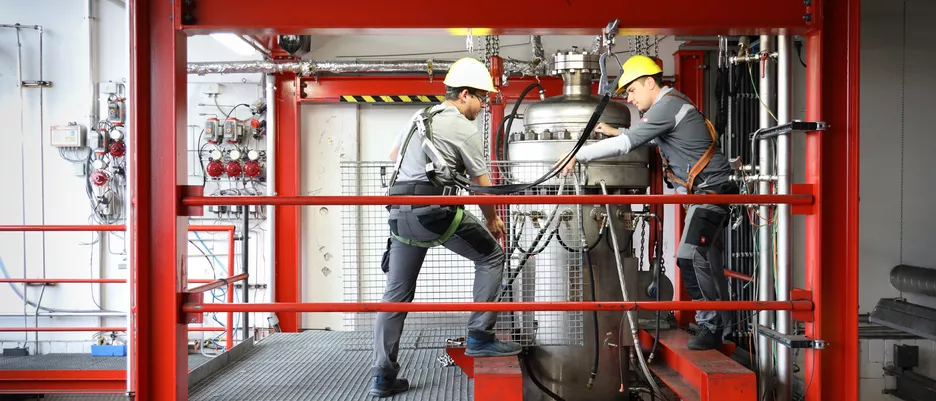Power Engineering M. Sc.
The Master's degree program in Power Engineering is an entirely English-language and highly international program. In a holistic approach, it teaches the technical and socio-economic principles for the development and use of the energy systems of the future.
An ecological, affordable and sustainable energy supply is the prerequisite for economic growth and prosperity in a society. Global warming, the finite nature of fossil fuels and strategic dependencies on fossil fuel suppliers make the transformation towards a decarbonised energy supply one of the most important technological issues of the 21st century. In order to meet these challenges, highly qualified specialists are needed in industry and science who understand and design the new energy systems of the future based on renewable energy in their complexity.
Do you want to be a player in this task of the century of transforming the energy sector and shaping the energy systems of the future? M. Sc. Power Engineering program will give you the professional qualifications you need.
Studying Power Engineering at TUM
In the video, master's students Himali and Siddharth talk about themselves, the Power Engineering degree program, and their studies at the Technical University of Munich.
What you'll learn for your future?
The degree programme imparts expert knowledge in the following areas, among others:
- Thermodynamic fundamentals of energy technology
- Detailed technical knowledge and comparison of power generation technologies (wind, hydro, solar and geothermal power plants)
- Mechanical and electrical engineering components of energy systems (e.g. electrical machines, energy storage systems)
- Construction and control of modern energy supply networks (e.g. smart grids)
- Innovative energy utilisation concepts (e.g. mobility of the future, energy sharing)
- International regulatory, socio-economic and ecological framework conditions for energy supply
- Principles and basics for sustainable technical developments
- Intercultural competence through studying in an international context
More information about the M.Sc. Power Engineering can be found in our Power Engineering Wiki.
Type of Study: Full Time
Standard Duration of Studies: 4 Semester
Credits: 120 ECTS
Main Locations: Munich, Garching
Admission Category: Aptitude Assessment for Master
Start of Degree Program: Winter Semester (October)
Application Period: Winter semester: 01.01. – 31.05.
Required Language Proficiency: German
Tuition Fees: for Students from Non-EU Countries
The master's program in power engineering deepens students' previous knowledge of energy technologies.
Students are enabled to understand innovative methods, technologies and structures in the area of centralized and decentralized power generation.
The aim is to develop and apply strategies for ecological, inexpensive and sustainable energy systems.
In addition to furthering core competencies in the areas of mechanical and electrical engineering, the master's program in power engineering offers students considerable freedom of choice. Modules are complemented by practical research.
- in the first semester, students' previous knowledge of various disciplines is deepened through core modules in the area of electrical and mechanical engineering
- the second and third semesters are devoted to the deepening of specialist knowledge and to an individual focus in the context of elective modules. This phase also includes practical research, where students collaborate on current projects conducted at a teaching or research institute. A seminar deepens the knowledge acquired from the modules and offers a further opportunity to focus on a special topic of research. Students can also supplement their management competencies and self-development through modules from outside the discipline.
- The fourth semester is devoted to the master's thesis, where the accrued knowledge of the discipline and its methods converge in the handling of a major task.
For information on application and admission to the M.Sc. Power Engineering program, please refer to the information in the wiki.

